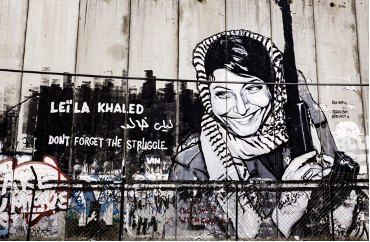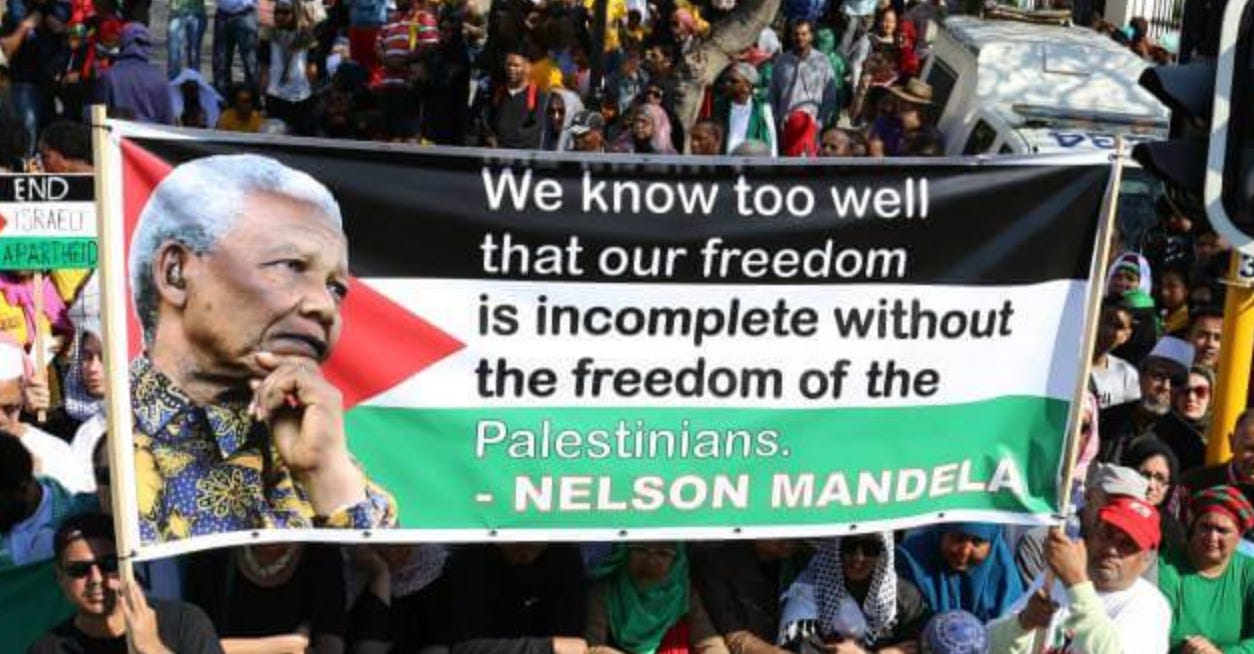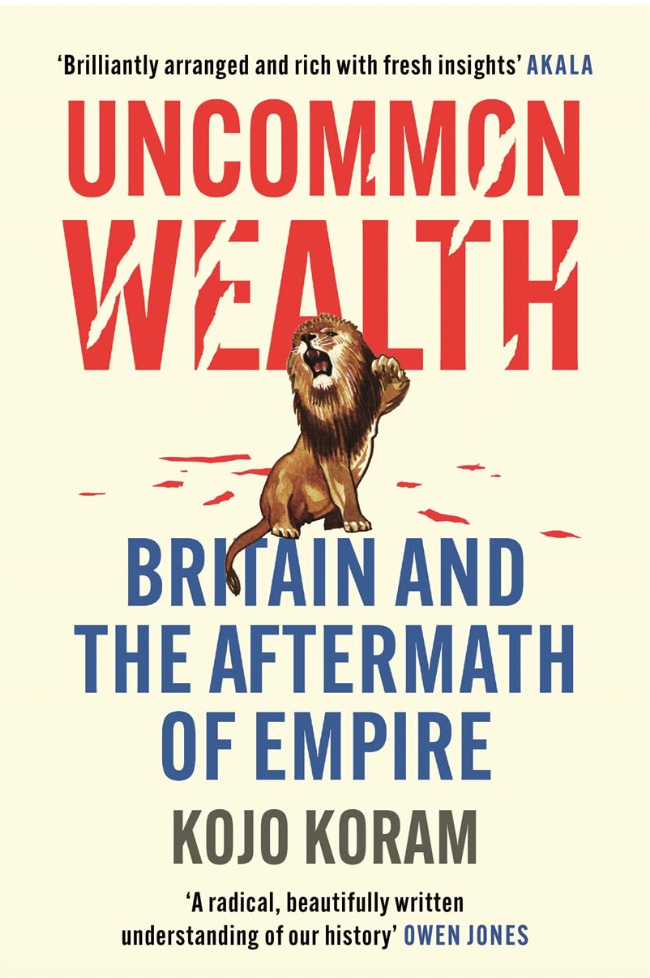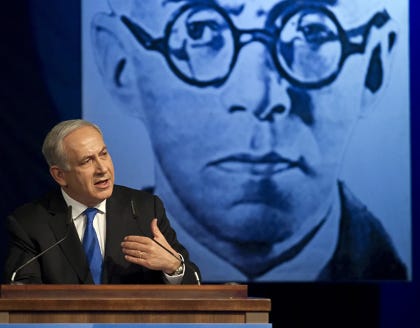It’s not only Israel that’s on trial in South Africa’s genocide indictment
Israel’s founders have proudly rooted their enterprise in the moral universe of European colonialism. Israel’s crimes are putting the liberal West on trial
I’ve never been as proud of my anti-apartheid struggle heritage as I was last week when South Africa filed charges of genocide against Israel at the International Court of Justice. South Africa’s apartheid regime had counted Israel as an ideological soulmate and close ally. Now, the democratic South Africa liberated from white minority rule is stepping up to honor its moral obligation, as stressed by the late President Nelson Mandela, to not rest until Palestine is free. This was also, honoring the debt to international civil society that had stood up to confront the Western powers coddling the Botha regime in the 1980s, declaring apartheid a crime against humanity and working to isolate Pretoria. Here was a free South Africa showing the world it had learned the lesson of that solidarity: None of us is free until all of us is free.
The millions of people who have taken to the streets around the world demanding an end to Israel’s genocidal military campaign reflect the reality that most of global civil society, particularly in or from the Global South, stands with the Palestinians. Yet, most of the governments of the world (those not directly complicit in or supportive of Israel’s criminality) have nonetheless failed to act. And it’s not hard to see why. Israel pursues genocidal violence, bombing and starving civilians and deliberately destroying their means of survival with a sense of impunity that beggars belief in the 21st Century. That’s because it acts with a well-grounded confidence that the American munitions it drops on the mothers and children of Gaza will keep flowing, as will the political cover blocking any international rebuke. One of the rules of Joe Biden’s “rules-based international order” requires silent quiescence to war crimes committed by the United States and its closest allies.
When you charge Israel with genocide, you can’t avoid the reality, unstated though it may be, that you’re thereby also charging the United States as an accomplice to genocide
But it’s not simply a product of Biden’s racist hypocrisy nor even of this particular moment; the arrogance with which Israel systematically violates international law and basic humanitarian norms derives from its grounding in a Western colonial and neo-colonial order that justifies epic violence to “pacify” and yoke the brown and black peoples of the planet to the needs of the colonizers. Israel is confident that its rationale for “necessary” violence — defending “civilization” from “barbarism”, and other grotesquely ironic narratives — resonates with the historical memory in Western capitals. The violence which Israel continues to unleash today is the violence that literally made the West the dominant force in the international system. As even the hawkish American “Clash of Civilizations” theorist Samuel P. Huntington noted,
"The West won the world not by the superiority of its ideas or values or religion (to which few members of other civilizations were converted) but rather by its superiority in applying organized violence. Westerners often forget this fact; non-Westerners never do."
Non-Westerners never do. So, it shouldn’t be surprising if most non-Westerners see in the violence and humiliation Israel is now raining down on Palestinians an echo of their historical brutalization and humiliation at the hands of Western power.
The corollary to Huntington’s point, also, is the pattern of moments of successful organized violence by non-Western peoples against the ostensibly invincible European/Western powers also sometimes have an inspirational effect across the Global South: Pankaj Mishra has illuminated this pattern in the impact of Japan’s defat of imperial Russia in 1905 on intellectuals ranging from Sun Yat-sen and Jawaharlal Nehru to Mustafa Kemal Ataturk and W.E.B. Dubois.
“Some of the numerous Arab, Turkish, Persian, Vietnamese and Indonesian nationalists who rejoiced over Russia’s defeat had even more diverse backgrounds. But they all shared one experience: of being subjugated by the people of the West that they had long considered upstarts, if not barbarians. And they all drew the same lesson from Japan’s victory: White men, conquerors of the world, were no longer invincible.”
A similar frisson of inspiration was felt across the Global South when Vietnamese revolutionaries defeated the French army at Dien Bien Phu, and forced the colonizers to depart. And again when they defeated the Americans who had replaced France. Or when bearded Cuban revolutionaries ejected a U.S.-backed dictator and fought off efforts to restore the ancien regime. It should be remembered, also, that Palestinian resistance stood, symbolically, at the center of a 1970s culture of Third World militancy

Palestine is not a state — it’s a people dispossessed by Western imperialism, its claims to self-determination scorned by the Western powers and betrayed or abandoned by most of the post-colonial autocracies that ruled the Arab region, but fighting irrepressibly and against massive odds to regain their land and rights.
When Nelson Mandela, released from prison in 1990, was challenged in the U.S. on his relationship with Yaser Arafat and other luminaries of Third World struggle, he politely but firmly made clear to the U.S. establishment that “your enemies are not our enemies”, and that he stood with those who had actively supported South Africa’s liberation struggle — making clear that he didn’t recognize the United States among that cohort.
Turning solidarity from sentiment to action, of course, is tricky challenge for the newly independent Third World countries when that required stranding up to the U.S. and Europe. Chief among obstacles is the centrality to governance everywhere of the global financial markets at the center of Western power. The grotesquely unequal global economy bequeathed by the West’s violent colonial pillage of the rest, inequalities based on violent theft, was maintained, after political decolonization, as codified private-property relations, as if it were a meritocratic order based on Western entrepreneurial prowess. (Remember what Huntington admitted!) This gave the U.S. and Europe effective veto power over the political independence of the former colonies — see Ghanaian British historian Kojo Koram for a powerful exposition of this process.
Post-apartheid South Africa, too, found itself in a subordinate position in a global economy and financial system created by and for the imperial powers, and whose inequalities were accelerated in the neoliberal era. (This power is openly leveraged even today, in moves such as pressuring Egypt to accept tens of thousands of Palestinian refugees ethnically cleansed from Gaza, in exchange for international financial institutions writing off $160 billion of its crippling national debt.)
South Africa has in recent years begun to politely resist the geopolitical demands of the United States, in the spirit of Mandela’s “your enemies are not our enemies” — most notably, it refused, in concert with most of the Global South, to take the NATO side in the Ukraine war. That may be a sign of the relative decline of U.S. power, and the growing economic independence of the middle powers of the BRICS alliance. Nonetheless, BRICS is a trade alliance; South Africa has now taken the lead in what amounts to a Global South geopolitical challenge to the U.S.
Pretoria’s resistance to U.S. influence has reached a qualitatively new level with the ICJ suit — because when you charge Israel with genocide, you can’t avoid the reality, unstated though it may be, that you’re thereby also charging the United States as an accomplice to genocide. South Africa has stepped up to rally the Global South to stand up to a U.S.-led global order that enables and permits a genocide Washington could end if it chose to.
* * *
Israel has pulverized much of Gaza and continues to kill hundreds of civilians every day — and is deliberately exposing hundreds of thousands more to a grim death from disease or hunger. But it’s clearly failing to destroy Hamas’ fighting capability. “Skepticism grows over Israel’s ability to dismantle Hamas”, warns the erstwhile Israel cheering section that is the New York Times. Far from marginalizing Hamas, Israel’s actions since October 7 have made the movement more popular than ever among Palestinians and others in the Arab region, while further marginalizing leaders aligned with Israel and the U.S.
Fadi Quran recently shared some perspective on how Israel’s choice of military tactics are seen through Palestinian eyes. Spoiler alert: They’re achieving quite the opposite effect of the “deterrence” through brutality that the Israeli military has always prized.
“We’ve seen a massive shift in the average perspective on the Israeli military in the MENA region. It used to be viewed as an intimidating advanced force to be reckoned with, with a level of supremacy that could not be broken,” Fadi wrote. “Now it is perceived as extremely weak and fragile. Specifically, the current perspective is that it would be easily defeated if it didn’t have unlimited American backing.”
Israel’s reliance on aerial bombing and shelling of urban population centers, he wrote, is “being perceived as the most cowardly tactic of a military that’s afraid of fighting ‘face to face’ with a militia that is a TENTH its size, has 1% of its resources, and has been under siege for 17 years. Israel’s ground incursions happen through fortified tanks after massive aerial and artillery bombardment and yet still fail to effectively hold territory.”
And a cursory glance at the Israeli media, not to mention the videos from Gaza released by Hamas, show that its ground operations are not going well, suffering significant casualties and failing to eliminate resistance.
Israel’s tactics, of course, also reflect a colonial legacy of brutal failure, and one that triggers the historical memory of the Global South. The extent and nature of the violence Western powers are willing to countenance against a captive, colonized people in Gaza is also a stark reminder to formerly colonized people and their descendants of accounts unsettled with the imperial West.
Israel even helpfully draws the connections between its campaign and Western traditions of violence against the colonized. It’s reliance on devastating air power against crowded civilian population centers has drawn comparisons to the World War 2 Allied bombing of Dresden, Hamburg and Tokyo — a comparison made even by Israeli leaders looking to justify the carnage they’ve unleashed. Addressing Western powers, their narrative is unapologetic: You did it in WW2, how can you question our reliance on a strategy you yourselves used to win a war?
The settler-colonial project relies, for its internal justification and in addressing its allies, on a narrative that proclaims it as an outpost of the liberal West in a “tough neighborhood”, a “villa in the jungle” as former PM Ehud Barak put it. This self-image allows for the a priori racist dismissal of the rights and claims of Palestinians: I’m reminded how the New York Times, back in 2009, reported that Israelis and their US backers were incensed by President Barack Obama’s 2009 speech in Cairo “because they saw the speech as elevating Palestinians to equal status”. If Biden saw Palestinian life as equal to Israeli life, he couldn’t possibly support Israel’s military campaigns massacring Gaza civilians. Of course, Obama quickly fell in line with the racist ways of the U.S. establishment, declining all opportunities for action to honor what amounted to the empty promises he made in Cairo.
America’s establishment is well-versed in the colonial principle of “necessary violence” to pacify native challengers, whether the tens of thousands of civilian casualties dismissed as “collateral damage” in Afghanistan and Iraq in the 21st century, or the hundreds of thousands of Native Americans who paid the price for the Westward expansion of the U.S. settler colony. And it’s to these deeply embedded assumptions about epic violence being required to defend and extend a liberal world order that the Israelis appeal.
The C Word
The New York liberal establishment squirms uncomfortably over the idea of Israel as a settler-colonial project and some of Israel’s younger partisans in the West gamely try to situate themselves in the decolonizing vogue via a feeble claim of “indigeneity” for the Ashkenazi Jews that drove the Zionist project. But Zionism was an almost entirely European fin de siècle nationalist movement, which had negligible resonance among the Jewish communities of the Arab and Muslim world for its first half century. Moreover, Zionism’s founders were explicit and proud in declaring the colonial underpinnings of their plan to build a Jewish state in Palestine.
And colonization meant violence, according to Vladimir Ze’ev Jabotinsky, founder of the Revisionist Zionist movement which has been the hegemonic force in Israeli politics for most of the past five decades. His influential pamphlet, The Iron Wall, written in 1923, is a blunt framing of Zionism’s colonial aspirations and the violence necessary to realize them. The Zionist goal of colonizing Palestine (his words) could not be achieved without brute force, because native populations never give up their land without a fight. The Arabs of Palestine, he wrote, “feel at least the same instinctive jealous love of Palestine, as the old Aztecs felt for ancient Mexico, and the Sioux for their rolling Prairies.”
Every native population in the world resists colonists as long as it has the slightest hope of being able to rid itself of the danger of being colonised.
That is what the Arabs in Palestine are doing, and what they will persist in doing as long as there remains a solitary spark of hope that they will be able to prevent the transformation of "Palestine" into the "Land of Israel."
The inevitable resistance of the indigenous population to the creation of a state for European settlers on their land, Jabotinsky argued, made British colonialism the indispensable vehicle for pursuing the Zionist goal of a state in Palestine, because Britain provided the military “iron wall” that Palestinians could not breach. “We are seeking to colonise a country against the wishes of its population, in other words, by force. Everything else that is undesirable grows out of this root with axiomatic inevitability.”
For Jabotinsky — and his heirs, who make Israel’s decisions today — there is no way around the simple truth that creating and sustaining a Jewish ethno-state in Palestine is a violent, colonial project, and its “iron wall” requires considerable support from the U.S.
Israeli leaders may be able to justifiably point out that Western colonization of Africa, Asia and the Americas was every bit as brutally racist and violent as what Israel has unleashed on the Palestinians since its creation. But the global context had begun to change at the point of Israel’s emergence. Here, the observation on Israel’s nature in its context by the late British historian Tony Judt, on the consequences of Israel being late to the settler-colonial game are worth noting:
“The problem with Israel, in short, is not—as is sometimes suggested—that it is a European “enclave” in the Arab world; but rather that it arrived too late. It has imported a characteristically late-nineteenth-century separatist project into a world that has moved on, a world of individual rights, open frontiers, and international law. The very idea of a "Jewish state"—a state in which Jews and the Jewish religion have exclusive privileges from which non-Jewish citizens are forever excluded— is rooted in another time and place. Israel, in short, is an anachronism.”
Financial Times columnist Adam Tooze recently echoed this historical perspective:
“Zionism has to be understood as a product of its era i.e. as a settler-colonial project, typical of European global thinking in the late 19th and early 20th century. What is distinctive about it, is that the Israelis are the last group of (mainly) Europeans to engage in the wholesale arrogation of non-European land, justified in their mission by theology, claims to civilizational superiority and nationalism. Of course, land grabs go on, all over the world, all the time. But, in the present day, the Israeli project is uniquely coherent and uniquely unapologetic as an instance of ‘classic’ settler-colonial ideology.”
Indeed, so it insistently brands as anti-Semitism any moves to deny Israel the right to behave, in a post-colonial century, in the ways that its Western colonial antecedents did in the 19th and early 20th centuries.
Here, the question of bombing is relevant. The use of air power against civilian population centers may have reached its apotheosis during World War 2 but it had been a colonial invention. Historian Sven Lindqvist noted in his profound and provocative “History of Bombing” that the aerial bombing of civilian population centers in World War 2 was a form of warfare first used by Western powers to suppress resistance in their colonies.
It was pioneered by an Italian pilot in Libya and two years later used by Spanish pilots in Morocco, in both instances to suppress anti-colonial rebellion. As Lindqvist told an interviewer, “My theory is that “Bomber” Harris and other leading air marshals [whose squadrons devastated German cities in World War II] were schooled into bombing civilians by their colonial experiences. Britain had been bombing civilians in Afghanistan, Iraq, Palestine, Egypt, and Africa since 1919 instead of using infantry and artillery.”
Whether they know it or not, the Israelis — helped by the US and its European allies — are reminding many around the formerly colonized world of how the West achieved its primacy. “Non-Westerners never forget”, per Huntington. And if they had forgotten, Israel is here to remind them how the liberal West was made.
But the context, as Judt noted, has changed. Israel is attempting a classic colonial “pacification” strategy in a moment where a new generation globally wants to settle accounts with the West, producing the receipts of colonial violence and enslavement, and demanding justice. And demanding justice for Palestine has become a recognizable shorthand for that global struggle to challenge how the world is ruled.
The Gaza moment and what it calls forth makes nonsense of the liberal pretensions of the West and its institutions, revealing their nature and roots in ways that exacerbate a long term crisis.
Gaza has, in fact, laid bare the deadly moral cesspool of a post-Cold War U.S.-led global system: Biden’s “rules-based international order” is a system of hypocrisy that legitimizes violence against the colonized Palestinians, notwithstanding some occasional hollow rhetoric as the weapons it continues to supply tear apart Palestinian bodies. Israel’s genocidal violence is quite simply intolerable to the Global South, but deemed necessary or acceptable by Western powers. South Africa has decided to challenge not only the perpetrators, but the global system that enables it.
In its moment of unipolar post-Cold War dominance, Washington claimed — and demanded global acceptance of — monopoly control over the international community’s Israel-Palestinian file. Needless to say, that resulted in a “peace process” in which Israel relentlessly expanded and deepened its apartheid occupation, while U.S. officials shut down any discussion of restraining Israel with the magic words “two-state solution”. The Biden Administration has doubled down rather than change course, leaving it standing naked before the global community as the key accomplice of Israel’s genocide
The ICJ case signals a recognition from an emerging player in the Global South that accepting U.S. hegemony and its terms means accepting the slaughter of tens of thousands of Palestinians, and ethnic cleansing of hundreds of thousands more.
The U.S. playbook forbids initiatives like South Africa’s ICJ complaint, just as it routinely vetoes any UN Security Council effort to restrain Israel’s genocide. So, by simply stepping up to hold Israel accountable, South Africa is breaking the spell of US hegemony that paralyzes so much of the world community from taking action to hold the genocidaires accountable. It’s a clarion call to the Global South to break free of the limits on international engagement set by Washington – if they want Israel to be stopped, they can’t rely on its US accomplice to do that; they’ll have to act despite, and even against the United States.
The chosen battleground may be the cataclysmic urgency of stopping Israel’s crimes, but the court case is about a lot more than Palestine — it may in fact be a harbinger of a tectonic challenge to a world run according to rules that legitimize or sanitize the crimes of U.S. elites and their global allies.
They may not be named as respondents, but President Biden and Secretary Blinken are on trial along with Netanyahu, Gantz and Galant. Stay tuned.






It seems to me that South Africa is trading one geopolitical player for another, worse one: Putin. First by refusing to denounce Russia’s invasion of Ukraine (that colonization is OK?) and now with its denunciation of Israel. Call me cynical but don’t all countries operate on realpolitik?
As an aside, the Europeans used bombing from the air because they had aircraft. I'm sure the Romans, Persians, Mongols, Ottomans etc would have done the same if they had them!